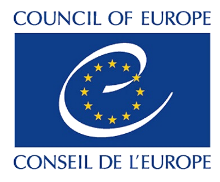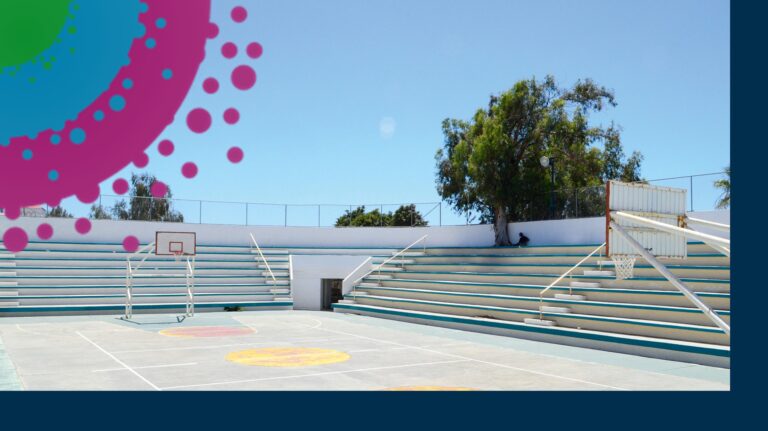Current status
Submitted
Discover more
After a contribution is submitted to BePART Forum, the initiative is marked as “Submitted”; as other partners involved in the initiative submit information from their side, the initiative is marked as “Under review” and goes through the validation process; twice a year, initiatives are validated by the BePART Working Group at the Council of Europe. Successful initiatives are marked as “Validated”. Do you want to learn more – click here
Contributor(s)
First contributor: Municipality of Tirana
Summary
Among the competences of the Municipality of Tirana, the Municipality has also the duty to manage the schools, kindergartens, and nurseries. This duty of the Municipality has been seen as an opportunity to rebuild schools previously left in terrible conditions and, at the meantime, how to recover the previously existing schools which were use by children and the community in three different shifts in order to have a community centre reactive and active every day.
The discussion with all the possible stakeholders of the Municipality, focusing on the possibility of building new schools and recovering the existing ones, taking into consideration the possibility to use the schools also in Community Centers.
The possibile stakeholders identified were:
- Central government
- Ministry of Education
- Ministry of Finance and Economics
- Ministry of Health and Social services
- Variety of NGOs from the field of Youth, social education, women’s centres, etc.
- Parents community
- Schools and education community
- Business and economy experts
- Citizens
Administrative level
Local (City of Tirana)
Year of implementation
Since 2018
Policy area(s)
- (Local) Development and Planning
- Education, culture, and sport
- Youth
- Social security/solidarity
Further details
/
Sorry, no records were found. Please adjust your search criteria and try again.
Sorry, unable to load the Maps API.
Partners Albania
Civil society organisation
Contact info
/
Tipology of involvement in the initiative
- Initiating (i.e., advocating for and starting the process)
- Organising
- Funding
- Participating with a direct involvement
- Indirectly impacted by the process
Municipality of Tirana
Public Authority
Contact info
/
Tipology of involvement in the initiative
- Initiating (i.e., advocating for and starting the process)
- Organising
- Funding
- Participating with a direct involvement
- Indirectly impacted by the process
Level of Participation
- Information
- Consultation
- Dialogue
- Partnership
Discover more
By level of participation we refer to the type of involvement in the decision-making process. The levels are identified by the intensity of participation: going from “information” to “consultation” to ” dialogue” to “partnership”. Do you want to learn more – click here
Developed practice(s)
The consultation phase was developed through:
- the organisation of three big focus groups with all above-mentioned stakeholders;
- the distribution of different questionnaires give to the citizens in order to gather relevant information and suggestions.
- the organisation of public hearings organised by the Municipality.
- the organisation of a social media campaign to disseminate and publicise the process.
As a result of this consultation, there were some results:
- The municipality introduced e new monthly tariff of 3 euro to the families for a period of 7 years. This was approved in the City Council and is now implemented and being collected. This budget will be used for construction of 17 new schools in cooperation of private businesses and landlords. Over a period of five years will be build 5 new schools.
- A part of the budget will come from the central government and the rest by the municipality budget as well.
- The municipality created a new campaign “Adopt a kindergarten” where the private business and parents’ community will sponsor their reconstruction. 65 kindergartens were reconstructed during 2 years of its implementation.
- The new schools that will be constructed and they will work as community centres.
- 40 sports facilities were reconstructed and after the school hours are being used by the community.
- Children stay at school even in the afternoons to follow different activities.
Step(s) of the political decision-making process at which the practice was implemented
- Inputs/Incentive ideas for policy
- Agenda setting of policy
- Drafting of policy
- Decision – making on policy
- Implementation of policy
- Monitoring of policy implementation
Discover more
There are six different steps of the political decision-making process: agenda setting, drafting of policy, decision-making, implementation of policy, monitoring and reformulation of policy. Each step offer opportunities for CSOs and public authorities to interact. Do you want to learn more – click here
How the initiative was implemented
Situation
/
Activities performed
- the organisation of three big focus groups with all above-mentioned stakeholders;
- the distribution of different questionnaires give to the citizens in order to gather relevant information and suggestions.
- the organisation of public hearings organised by the Municipality.
- the organisation of a social media campaign to disseminate and publicise the process.
Tools and mechanisms applied
- Social media, focus groups
- Surveys and questionnaires
- Public hearings
Goals of the civil participation initiative
At community level
- Reduced the two shifts of study at school.
- Increased the use of school and sport facilities by the community.
- Strong correlation of the public and business sector with the work of the municipality.
From Civil society organisation’s perspective
Improved the awareness and collaboration with the municipality.
From Public Authority’s Perspective
Budget increased and improvement of community service.
Results expected prior to the implementation
- Build 17 new schools.
- Partnership between citizens, municipality and businesses improved.
- Improved sports facilities at school and used after school hours by the community.
- The benefits were for the citizens, youth, community and for the municipality as well.
Immediate results achieved after implementation
- 65 kindergartens reconstructed
- 40 sports facilities constructed
- 5 new schools build
Long-term impact
17 new schools and more than 75 sport facilities for the communities
Practice lessons learnt (obstacles and solutions)
| Agency (i.e., political conditions/power structures) | Obstacles | Lower resources monetary and human |
| Solutions | Involvement of business community | |
| Legislative | Obstacles | Approve needed by the city council and political situation |
| Solutions | Public and city council involvement in public hearings | |
| Administrative | Obstacles | Lower resources monetary and human |
| Solutions | Dialogue and willingness of the central government | |
| Socio-cultural | Obstacles | No citizens involvement earlier |
| Solutions | Public hearings and thorough explanation | |
| Economic | Obstacles | No budget |
| Solutions | Private partnership | |
| Human capital | Obstacles | Lack of human capacities |
| Solutions | Trainings | |
| Other | Obstacles | / |
| Solutions | / |
Further information
/
Self-assessment
The self-assessment presents the opinion of the contributor about on what extent the following principles for Civil Participation have been reflected in the implementation of the initiative/practice/case-study, ranging from 1 (min) to 4 (max) (N/A: not applicable, do not know)
| Openness | 4 |
| Explanation | |
| Trust | 4 |
| Explanation | |
| Independence | 4 |
| Explanation | |
| Participation | 4 |
| Explanation | |
| Transparency | 4 |
| Explanation | |
| Accessibility | 4 |
| Explanation | |
| Non-discrimination | 4 |
| Explanation | |
| Inclusiveness | 4 |
| Explanation | |
| Accountability | 4 |
| Explanation |
Thank you for wanting to share your experience on the BePART platform!
Learn more about the submission process, or just fill the form below.



